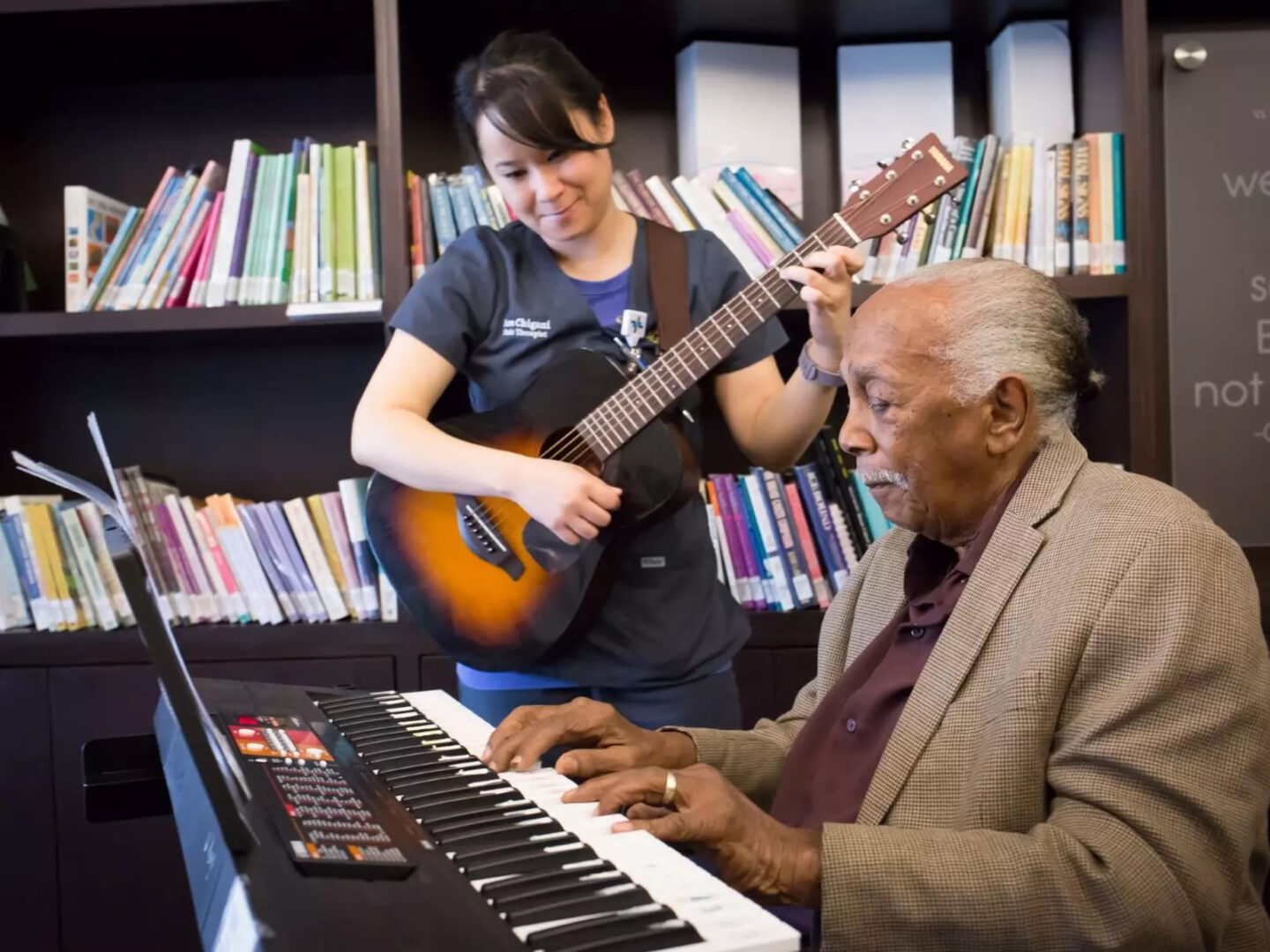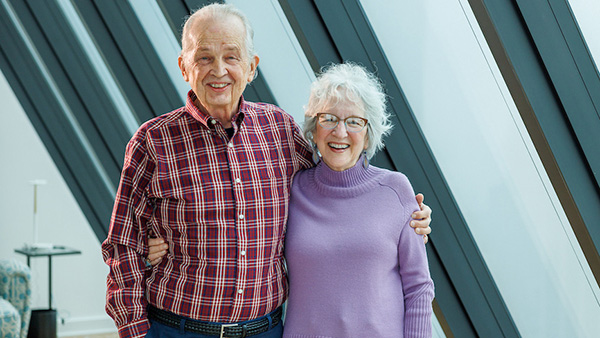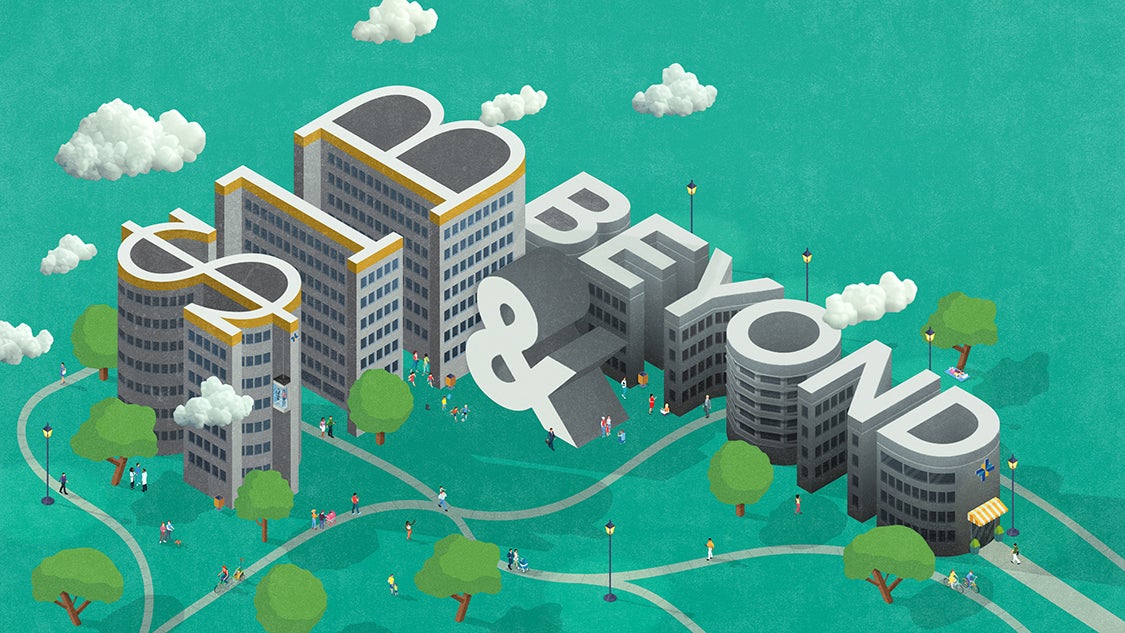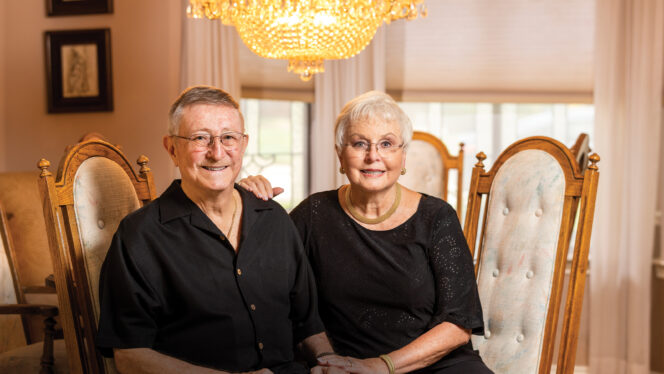In this Article
- Research center director for behavioral health at Baylor Scott & White Research Institute
- You conduct research into the psychological impact of brain injuries, spinal cord injuries and other traumas. What drew you to studying the impact of COVID-19?
- Your team’s research into the effects of COVID-19 started with a focus on the North Texas area but has since expanded to include people across the US. How were you able to do that?
- What tips do you have for cultivating resiliency in the face of this pandemic?
- When you’re not working, how do you take care of yourself?
Research center director for behavioral health at Baylor Scott & White Research Institute
In this Article
- Research center director for behavioral health at Baylor Scott & White Research Institute
- You conduct research into the psychological impact of brain injuries, spinal cord injuries and other traumas. What drew you to studying the impact of COVID-19?
- Your team’s research into the effects of COVID-19 started with a focus on the North Texas area but has since expanded to include people across the US. How were you able to do that?
- What tips do you have for cultivating resiliency in the face of this pandemic?
- When you’re not working, how do you take care of yourself?
Leading research at Baylor Scott & White to determine the psychological impact of COVID-19 is Ann Marie Warren, PhD, research center director for behavioral health at Baylor Scott & White Research Institute. A clinical psychologist and co-director of the Trauma Research Program at
Baylor University Medical Center, Dr. Warren has a passion for understanding human resilience in the face of life-altering medical circumstances.
You conduct research into the psychological impact of brain injuries, spinal cord injuries and other traumas. What drew you to studying the impact of COVID-19?
Both clinically and in research, I’m interested in how people are affected by unusual, difficult or traumatic events. Many times, psychologists look at depression or PTSD or anxiety disorders [as outcomes], but I’m also interested in the positive side: resiliency. There has been psychological research on the impact of SARS and MERS, but researchers are just now studying this topic for COVID-19. My team and I took the principles that we’ve applied to other populations and are looking at various elements including the effects of media exposure, issues about social isolation and more.
“There has been psychological research on the impact of SARS and MERS, but researchers are just now studying this topic for COVID-19. My team and I took the principles that we’ve applied to other populations and are looking at various elements including the effects of media exposure, issues about social isolation and more.”
-Dr. Ann Marie Warren
Your team’s research into the effects of COVID-19 started with a focus on the North Texas area but has since expanded to include people across the US. How were you able to do that?
We wanted to study a larger sample, and support from Baylor Scott & White Dallas Foundation was incredibly helpful. We know healthcare workers are on the front lines, but so are grocery store workers, people transporting goods and services, and more. With the Foundation’s support, we were able to use patient panel data, which allows us a nationally representative sample, with a mix of 40% healthcare workers, 30% essential workers and 30% general population.
Now, we can compare what was happening in the pandemic during different time periods in various areas of the country with its impact on subjects in this observational study. We are looking at PTSD, depression, anxiety, social distancing behavior and more to figure out what things people without much psychological distress are doing, and, once we know that, we will look at how we can develop interventions for those with distress.
What tips do you have for cultivating resiliency in the face of this pandemic?
The definition of resilience is that you’re able to adapt and thrive after a traumatic event. It’s not just that you have something bad happen; it’s about adapting, bouncing back. Techniques to help you bolster resilience are finding a source of social support, expressing your feelings and participating in meaningful activities—all good self-care strategies. When you look at the research, resilience, spirituality, attitude and optimism are highly correlated. For all of us, one of the best resilience tips is to work on being present in the moment. Be present and grateful for this moment because we don’t know what’s going to happen tomorrow.
When you’re not working, how do you take care of yourself?
I exercise regularly and try to eat healthily. When I was little, I took piano
for years, and recently with the downtime due to the pandemic, my husband thought it would be a good idea to get me a keyboard. I’ve been re-teaching myself to play! For me, it’s something that is challenging, meaningful, and it’s something that is just for me. That helps me unwind. I also love to fish and occasionally watch reality TV (guilty pleasure)!








